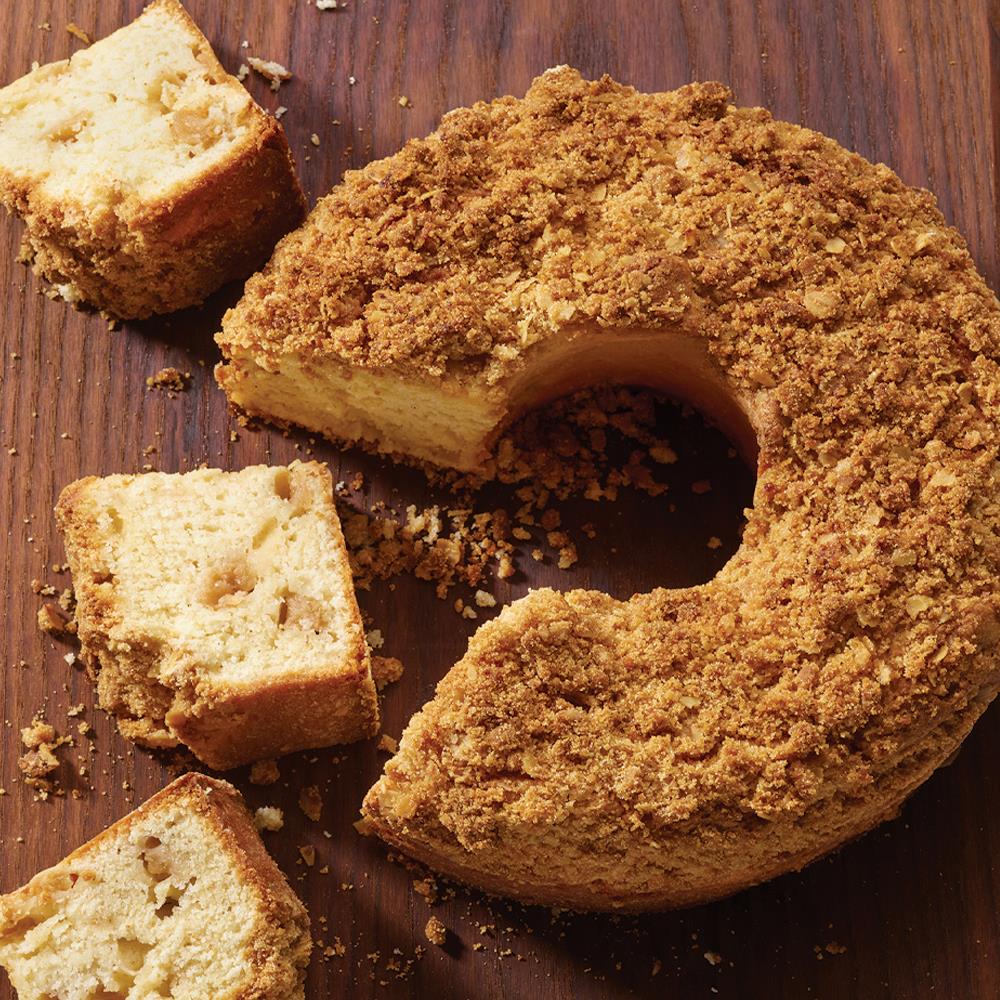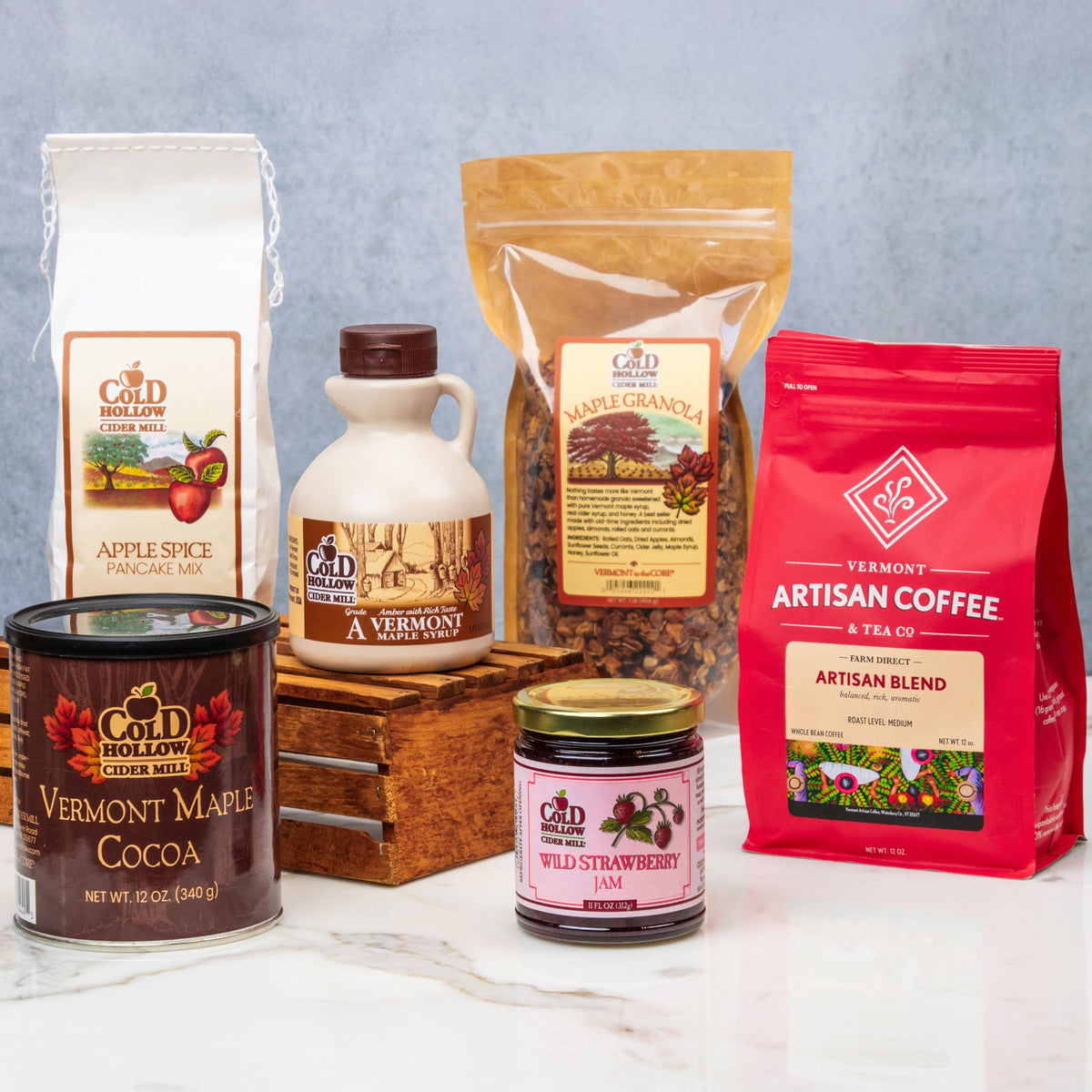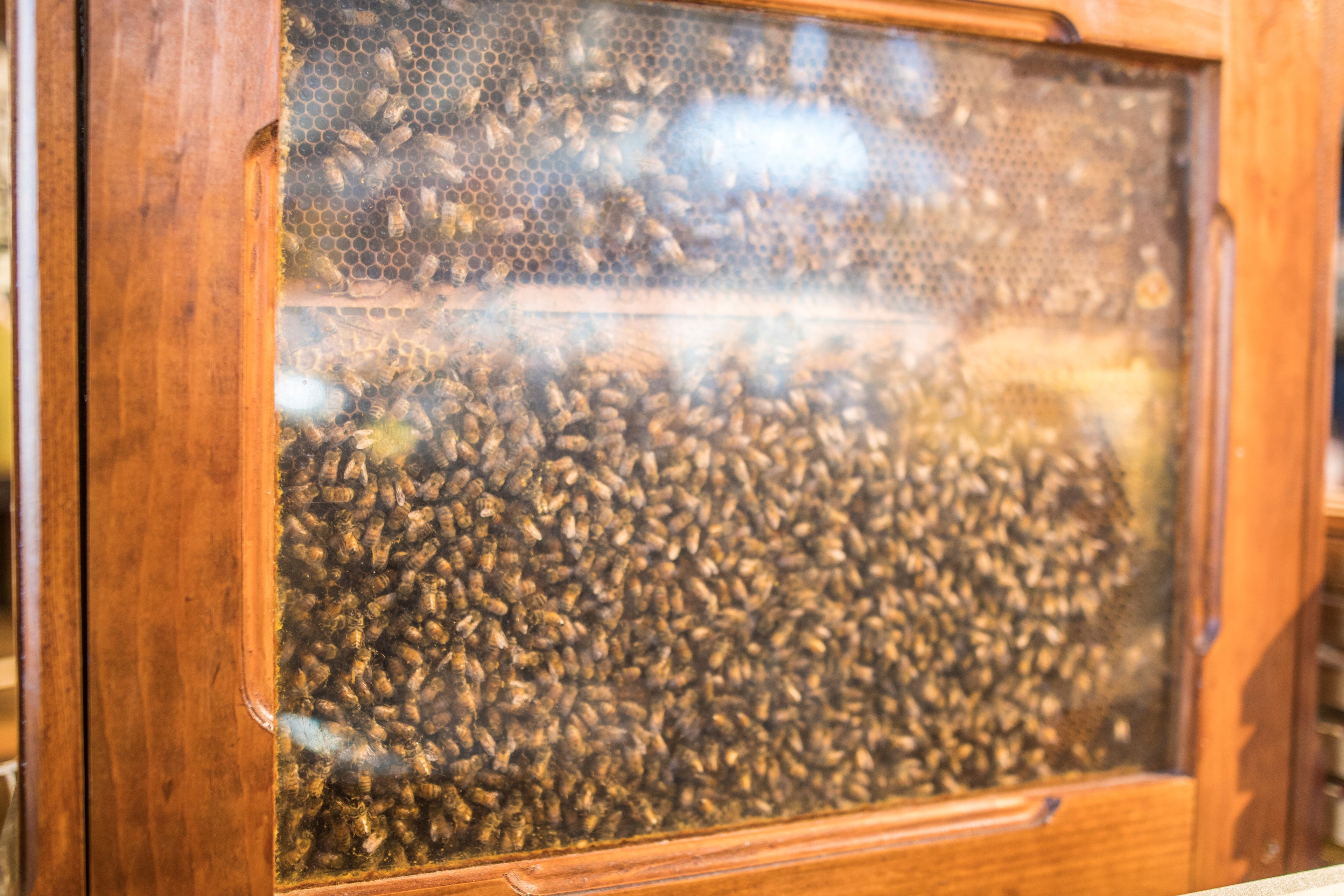After a long Vermont winter and wet mud season, there is no greater joy than the blossoms of springtime.
Local apple trees are one of the first things to bloom each spring. As you watch their beautiful pink flowers start to open, you can’t help but crave the crisp, juicy fruit that will be picked off the tree in the fall.
But there’s a lot of work to do before an apple tree produces fresh fruit. And most of the hard work is done by the tiniest members of the production team: bees!
Honey bees are essential members of an apple orchard. As pollinators, they play an important role in carrying pollen between blossoms. This helps fertilize the apple trees so they can produce fruit.
In the United States, 90% of apple crops are pollinated by bees. We wouldn’t have the delicious apple products we know and love without these mighty insects.
Here at Cold Hollow, the honey bee is one of our most valued team members. They are vital to every delicious apple treat we produce, from cider to donuts to jam.
When you think of fresh apples, you probably associate their flavor with fall.
But the success of this juicy fruit begins in the spring. And it all starts with the honey bee.
How Do Bees Pollinate Apple Trees?
Springtime in the apple orchard looks quite different than in the fall. Instead of an abundance of apples, you’ll find a swarm of bees.
Bees start buzzing through the trees once the leaf buds unfold. The apple trees flower into gorgeous pink and white blossoms that are irresistible to the honey bee. When the apple flowers open, their sweet nectar and scent attract bees to the tree.
Bees love nectar and need it to feed their colonies. And the trees need the bees to support its growth. This exchange plays an important role in our food system.
When a honey bee collects nectar at the apple tree, it brushes up against a part of the flower called the stamen. The bee doesn’t do this intentionally - it's just what it gets for visiting a tiny flower.
The stamen then deposits grains of pollen on the hairs of the honey bee. When the bee buzzes off to visit another apple flower, it carries this pollen with it.
The still hungry bee will then collect nectar from a second flower. As it lands, the pollen on the bee is transferred to the pistil, a different part of the flower located in the center of its leaves.
The pistil needs to receive the pollen to fertilize the apple tree. After this, the tree can begin producing fruit.
But the tree needs the help of the honey bee to make this happen. Without bees, most apple trees would not produce any apples at all.
The pollen from a tree's flowers will not pollinate other flowers on the same tree. Trees need bees to help carry pollen from another tree to produce their fruit.
Bees and apple trees have a powerful relationship. They help each other out!
And their friendship helps us enjoy some delicious fruit.
Throughout the day, a honey bee will fly from tree to tree, repeatedly collecting and spreading pollen from flower to flower.
These insects are quite efficient. Honey bees will work together to pollinate entire orchards, flying around the apple trees to carry nectar and pollen.
Although they are strong fliers, the honey bees can only manage a small radius of apple trees at once. It would be a lot to ask a tiny bee to cover an entire orchard!
To help bees be productive, commercial apple orchards can place one beehive per acre. Each team of bees will be responsible for the area closest to its hive.
Apple trees should also be grown no more than 100 feet apart. This helps bees travel between them and keep the pollination going. Too far apart, and the bees would have a harder time getting from tree to tree.
It’s a hard job, but someone’s gotta do it!
What is Cross-Pollination?
Bees don’t have a map of the orchard to guide them between certain types of trees - they just follow the sweet scent of the apple flowers as they desire.
So it’s common for honey bees to transfer pollen between different types of apple trees. When they do so, cross-pollination occurs.
Apple trees benefit from cross-pollination and can be more fruitful when grown near other varieties of apples.
Apple orchards make strategic choices about which types of apples grow where. Certain varieties of apples pair better together in the orchard than others. These pairings can help produce higher yields or different flavors of fruit.
Next time you're in an apple orchard, take note of which varieties are growing where. The same apples may be growing together, but there also might be other compatible varieties nearby.
Your favorite apple variety may even be the result of cross-pollination.
Our Cold Hollow team prefers the McIntosh apple. The Mac’s tart flavor and natural sugars make it perfect for our specialty fresh-pressed cider.
We buy our McIntosh apples from Vermont and New York farmers in the Champlain Valley, many of whom we’ve been partnering with for over 40 years.
Local apples arrive fresh and packed with flavor. Plus, supporting our local apple producers also helps support our local bees.
Protecting the Apple Pollinators
We’re passionate about doing all we can to protect the pollinators on our local apple orchards. Without them, we wouldn’t have most of the ingredients we use every day.
Pollinators have a powerful impact on our food supply in Vermont and all around the world.
According to the National Park Service, one out of every three bites you eat comes from the hard work of a pollinator like the honey bee.
This is why we need to do all we can to protect them.
Increased use of pesticides and insecticides is very harmful to pollinators. These chemicals kill bees and their habitats. This reduces the rate of pollination on our farms and the yield of crops.
Organic fruits and vegetables are grown without the use of these harmful chemicals. We buy organic whenever possible to help protect our pollinator friends.
We know how valuable honey bees are to everything we do. It's not just about crisp apples and cider - but everything we eat. We all need pollinators to survive.
And we can all make an effort to help protect them.
We need to cherish the honey bees in our environment. Be kind to the honey bees and respect the hard work that they do to feed us.
You can also support the honey bee by planting pollinator-friendly plants on your property or even have your own beehive!
When you visit us in Vermont, come see our live observation beehive here at the Cider Mill. We give bees a happy place to live with easy access to the outdoors for pollinating the trees and flowers on our property.
Our observation hive is available for viewing inside our retail store. It's a great area to explore with the kids! Find the Queen Bee, see the inner workings of an organized beehive, and start sharing the love for these amazing insects.
Then next time you bite into an apple, you’ll know exactly who to thank for producing this delicious fruit.
Enjoy An Apple, Thank a Bee
Bees are the champions of the apple flavors we know and love.
And our Cold Hollow team loves apples. They’re at the heart of everything we do at the Cider Mill.
This spring’s honey bees are hard at work pollinating the orchards. And we can’t wait to taste the benefits this fall.
Until then, you can enjoy the labor of last year’s honey bees with some of our favorite apple products.
Or visit us sometime - we’re open and would love to have you stop by for a fresh cider pressing or to view our beehive.



